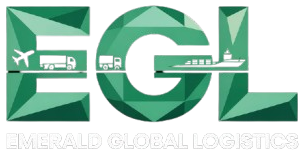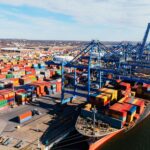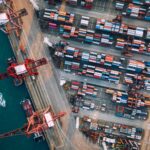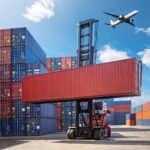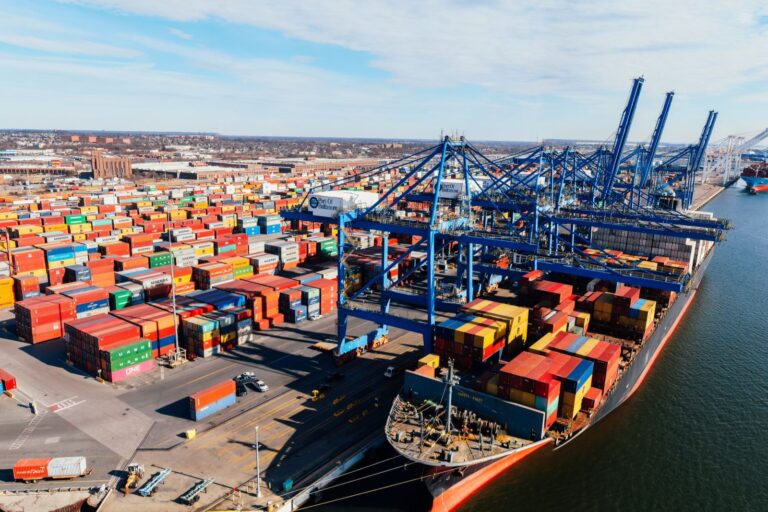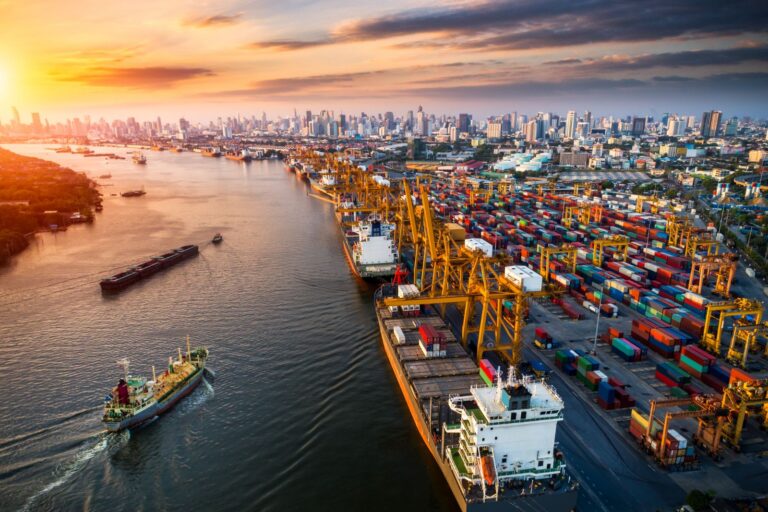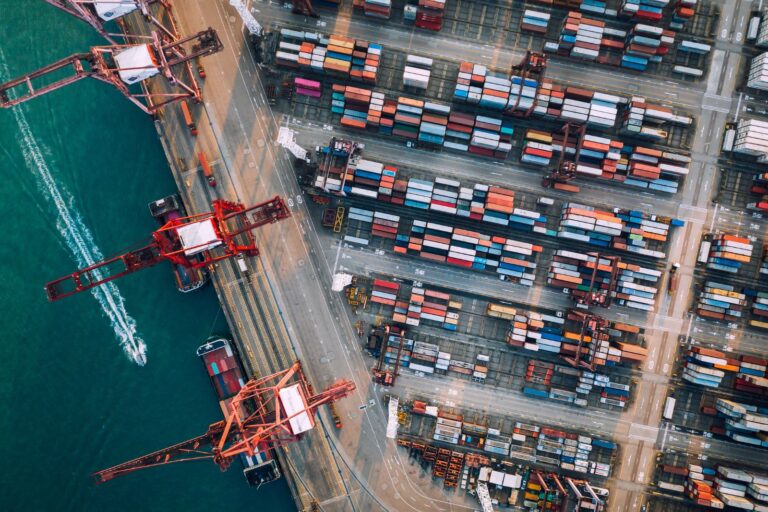Introduction
Global trade has never been more accessible, yet many businesses still struggle with the complexities of moving goods across borders. Customs regulations, multiple carriers, documentation, and unforeseen delays can make international logistics overwhelming. This is where freight forwarding comes in.
Understanding how freight forwarding works can save companies significant time, money, and stress. Freight forwarders act as intermediaries, coordinating every step of the shipment process—from booking cargo space to customs clearance—ensuring goods arrive smoothly and on time.
At EGL – Emerald Global Logistics, we specialise in providing tailored freight forwarding solutions that simplify international trade for businesses across Australia. In this article, we’ll break down how freight forwarding works, why it matters, the costs involved, and how to avoid common mistakes.
What Is Freight Forwarding?
Freight forwarding is the process of arranging the transport of goods from one location to another using third-party logistics providers. Rather than operating their own ships or planes, freight forwarders leverage a network of carriers to move cargo efficiently.
Key responsibilities of a freight forwarder include:
- Negotiating rates with shipping lines and airlines.
- Handling customs documentation.
- Organising storage and warehousing.
- Ensuring compliance with international trade regulations.
- Managing final delivery to the customer’s location.
How Freight Forwarding Works: Step-by-Step
1. Shipment Planning
The process starts with the business providing shipment details—type of goods, volume, origin, and destination. Freight forwarders then determine the best transport mode (sea freight, air freight, road, or rail).
2. Carrier Selection & Booking
Forwarders use their global network to negotiate competitive rates and book cargo space with carriers.
3. Documentation & Customs Preparation
Essential paperwork includes:
- Commercial invoice
- Packing list
- Bill of lading or airway bill
- Certificates of origin (if required)
4. Cargo Consolidation (if needed)
Smaller shipments are often combined into a single container through Less than Container Load (LCL) services, reducing costs for shippers.
5. Freight Transportation
The goods are shipped via the chosen mode—air freight for speed, sea freight for cost savings, or multimodal transport for efficiency.
6. Customs Clearance
Upon arrival, freight forwarders or their customs brokers ensure duties, taxes, and import regulations are satisfied before goods are released.
7. Final Delivery
After clearance, goods are transported by truck or rail to the consignee’s warehouse or distribution centre.
Benefits of Freight Forwarding
Working with a freight forwarder provides businesses with several advantages:
- Expertise in international trade – Ensures compliance with complex regulations.
- Cost savings – Access to bulk carrier rates.
- Time efficiency – Forwarders handle paperwork and coordination.
- Reduced risk – Minimise delays, penalties, and cargo mishandling.
- Flexibility – Multiple transport options tailored to business needs.
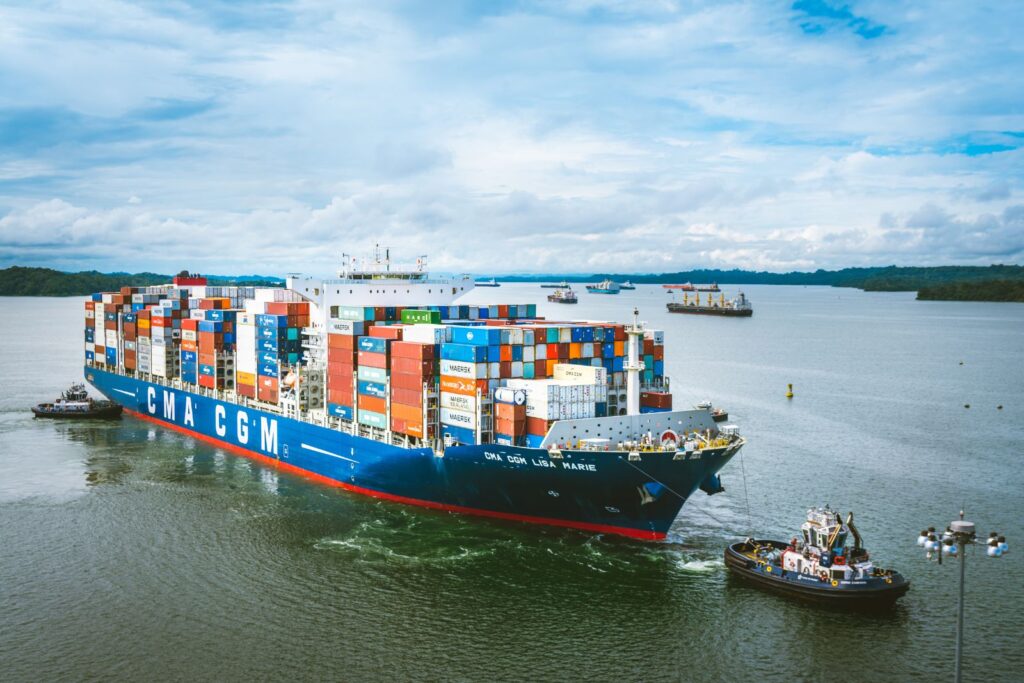
Costs of Freight Forwarding
The cost of freight forwarding depends on several factors:
- Freight charges – Based on weight, volume, and distance.
- Fuel surcharges – Adjusted with market rates.
- Customs duties & GST – Vary by product classification.
- Insurance – Protects against damage or loss.
- Brokerage fees – For customs processing.
- Local delivery costs – From port to final destination.
💡 Tip: Freight forwarders like EGL – Emerald Global Logistics provide detailed landed cost estimates, so businesses know their total expenses upfront.
Tips & Best Practices for Freight Forwarding
- Plan ahead – Sea freight takes longer; book early to avoid delays.
- Classify goods correctly – Accurate HS codes prevent customs issues.
- Get insurance – Always protect high-value shipments.
- Choose the right mode – Air freight for urgency, sea freight for bulk.
- Work with experienced forwarders – Avoid costly mistakes with expert guidance.
Common Mistakes to Avoid
- Incomplete paperwork – Missing documents delay shipments.
- Not budgeting for all costs – Overlooking duties, taxes, or port fees.
- Last-minute shipping – Leads to higher costs and limited options.
- Choosing price over quality – Cheap forwarders may lack reliability.
- Ignoring local regulations – Non-compliance can lead to seized cargo.
Real-World Example
A medium-sized retailer in Sydney needed to import consumer electronics from China. Handling logistics directly resulted in delays due to incorrect customs classification. After engaging EGL – Emerald Global Logistics, the company streamlined documentation, consolidated shipments into FCL containers, and reduced freight costs by 15%, ensuring products reached shelves faster.
Why Partner With EGL – Emerald Global Logistics?
At EGL – Emerald Global Logistics, we make freight forwarding simple, reliable, and cost-effective.
- End-to-end services – From pickup to delivery.
- Customs brokerage expertise – Hassle-free compliance.
- Tailored solutions – For SMEs and large corporations alike.
- Global network – Strong partnerships with carriers worldwide.
👉 Learn more about our expertise: About EGL
FAQs – How Freight Forwarding Works
1. Do freight forwarders own ships or planes?
No, freight forwarders do not operate carriers. They coordinate logistics using third-party shipping lines, airlines, and trucking companies.
2. How long does the freight forwarding process take?
It depends on the mode of transport—air freight can take 3–7 days, while sea freight may take 2–6 weeks.
3. Is freight forwarding the same as customs brokerage?
Not exactly. Freight forwarding covers the entire logistics chain, while customs brokerage focuses only on clearance and compliance.
4. How much does freight forwarding cost?
Costs vary by shipment size, mode of transport, and destination. Forwarders like EGL provide detailed quotes upfront.
5. Can small businesses use freight forwarding services?
Yes, freight forwarding is ideal for SMEs looking to streamline imports and exports without managing logistics in-house.
Conclusion – Streamline Logistics With Expert Freight Forwarding
Understanding how freight forwarding works is essential for businesses engaged in international trade. From shipment planning and customs clearance to final delivery, freight forwarders simplify the entire process, reduce risks, and cut costs.
At EGL – Emerald Global Logistics, we specialise in tailored freight forwarding solutions for businesses of all sizes. Whether you’re importing raw materials or exporting finished products, our team ensures seamless logistics from start to finish.
👉 Ready to simplify your shipping process? Contact EGL today and let us handle the logistics while you focus on growing your business.
